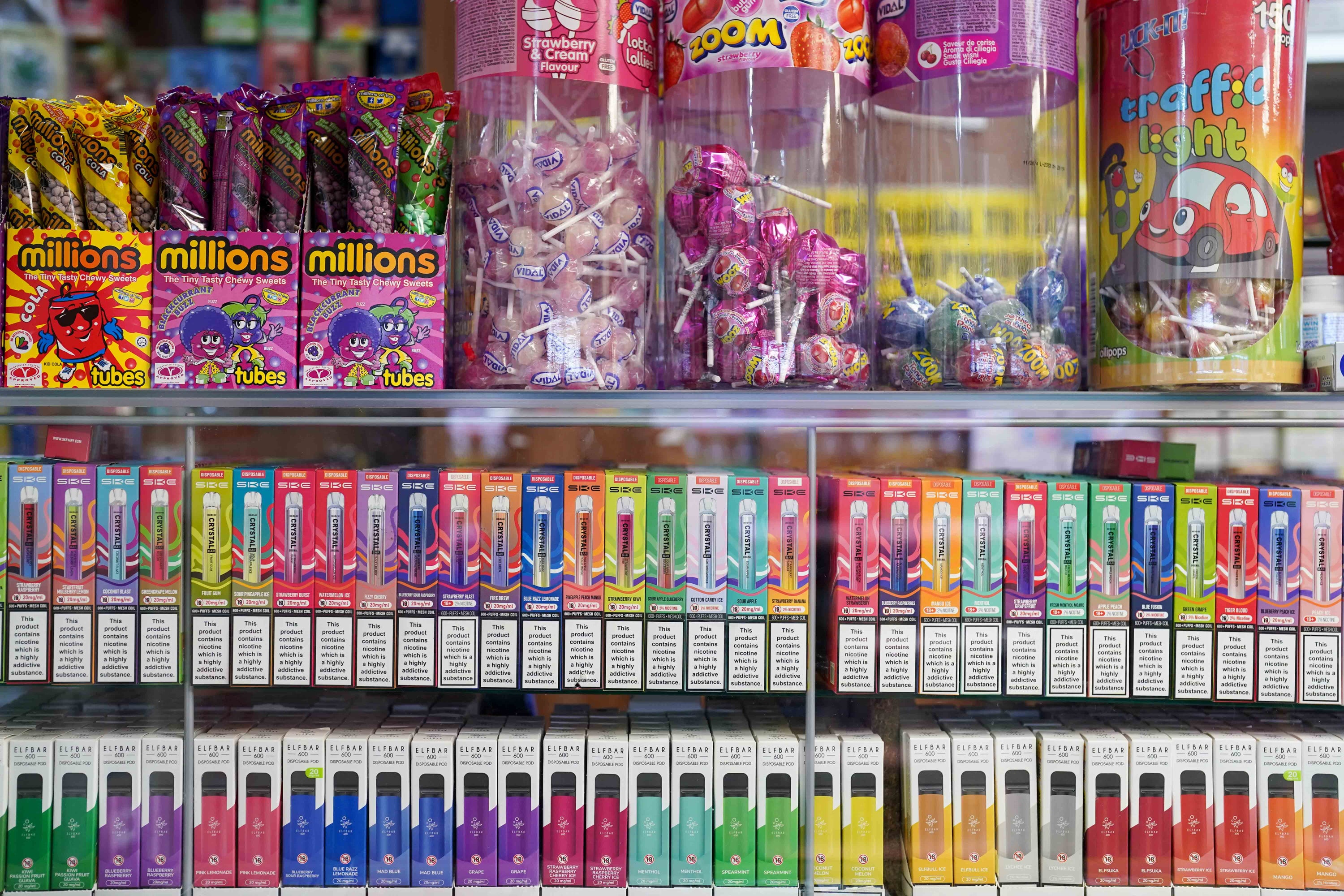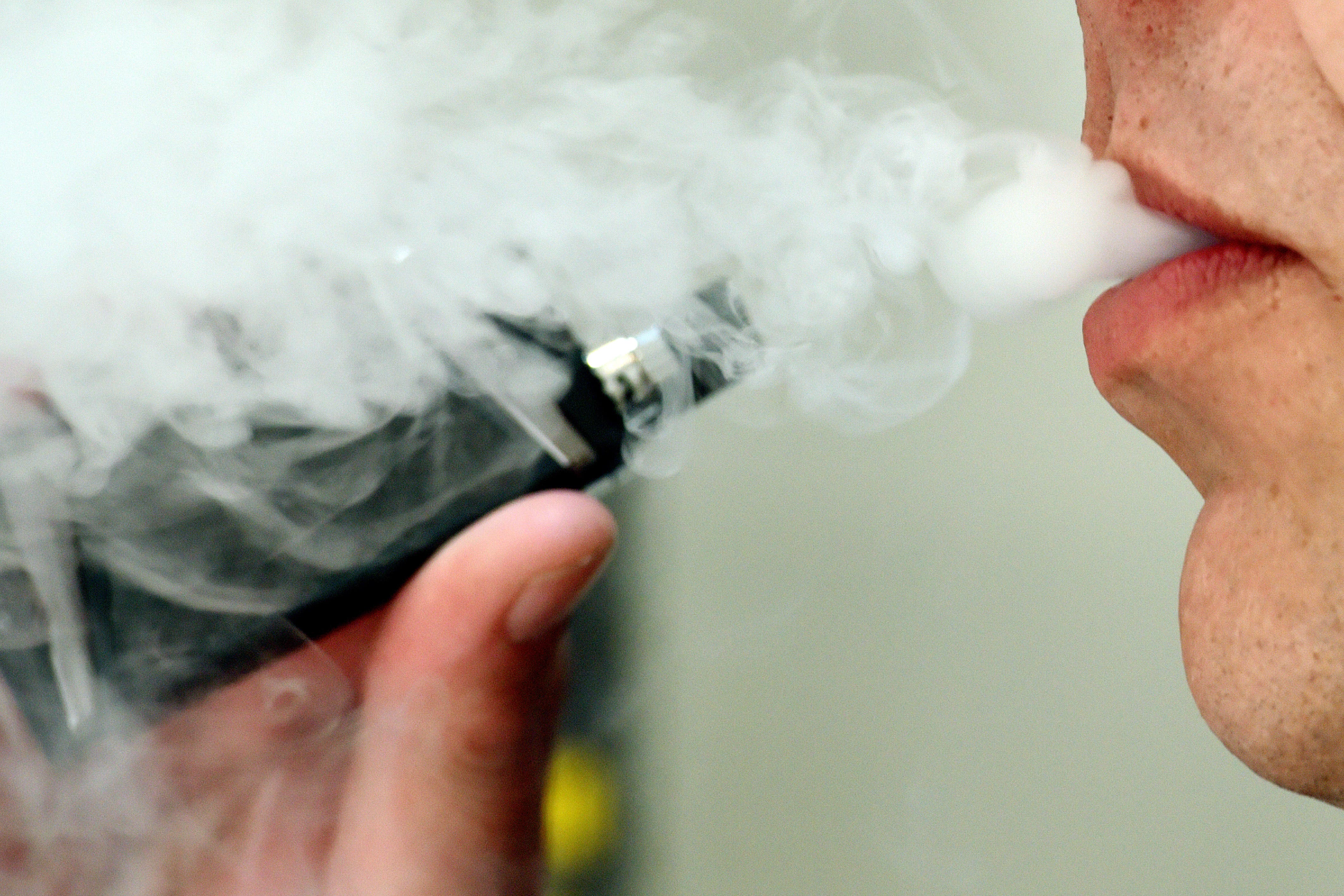Disposable vapes ban: Labour’s war on vaping explained
Disposable vapes will be banned from sale in England and Wales from 1 June, 2025 - as Labour reportedly considers increasing a incoming tax on vaping products

Your support helps us to tell the story
From reproductive rights to climate change to Big Tech, The Independent is on the ground when the story is developing. Whether it's investigating the financials of Elon Musk's pro-Trump PAC or producing our latest documentary, 'The A Word', which shines a light on the American women fighting for reproductive rights, we know how important it is to parse out the facts from the messaging.
At such a critical moment in US history, we need reporters on the ground. Your donation allows us to keep sending journalists to speak to both sides of the story.
The Independent is trusted by Americans across the entire political spectrum. And unlike many other quality news outlets, we choose not to lock Americans out of our reporting and analysis with paywalls. We believe quality journalism should be available to everyone, paid for by those who can afford it.
Your support makes all the difference.The sale of disposable vapes will be banned in England and Wales from next year.
Under legislation laid out by the Labour government in Parliament, it will be illegal for retailers to sell the devices from 1 June, 2025.
The Department for Environment, Food and Rural Affairs said businesses will have until the deadline “to sell any remaining stock they hold and prepare for the ban coming into force”.
Defra said vape usage in England had grown by more than 400 per cent between 2012 and 2023, with 9.1 per cent of the British public now buying and using the products.
Recent figures also revealed that the number of young people who said they vaped had tripled over the past three years.
Health minister Andrew Gwynne said: “It is deeply worrying that a quarter of 11 to 15-year-olds used a vape last year.
“We know disposables are the product of choice for the majority of kids vaping today. Banning them will keep them out of the hands of vulnerable young people.”
The ban will come before a new tax on vaping products.

From April 2026, the levy is set to take effect after the Conservatives put forward the measure in March. This will introduce a levy of £1-3 per 10ml of vape liquid, increasing depending on nicotine levels.
This could cost the average vape user around £72.80 a year, an analysis by The Independent found, with an average £4 bottle of E-liquid rising to £5.40.
It has been reported that Rachel Reeves is considering raising the tax further as part of her Budget to be unveiled at the end of the month.
Labour has already outlined its ambition to reduce the amount of young people smoking or vaping, bringing in new rules as part of the Tobacco and Vapes Bill.
The legislation aims to prevent anyone born after January 1 2009 from legally smoking by gradually raising the age at which tobacco can be bought.

The Bill, which health secretary Wes Streeting said would be introduced before Christmas, will also give the government new powers to regulate flavours, packaging and displays of vape products to make them less appealing to children.
Chris Thomas, research fellow at the Institute for Public Policy Research (IPPR), told The Guardian: “It is right that the government considers new taxes designed to disincentivise or penalise industries and products that harm health while creating revenue to invest in health creation.
“We estimate health levies on alcohol, tobacco, vapes, junk food and gambling could raise as much as £10bn by the end of the decade.”
A Treasury spokesperson said: “We do not comment on speculation around tax changes outside of fiscal events.”
Join our commenting forum
Join thought-provoking conversations, follow other Independent readers and see their replies
Comments